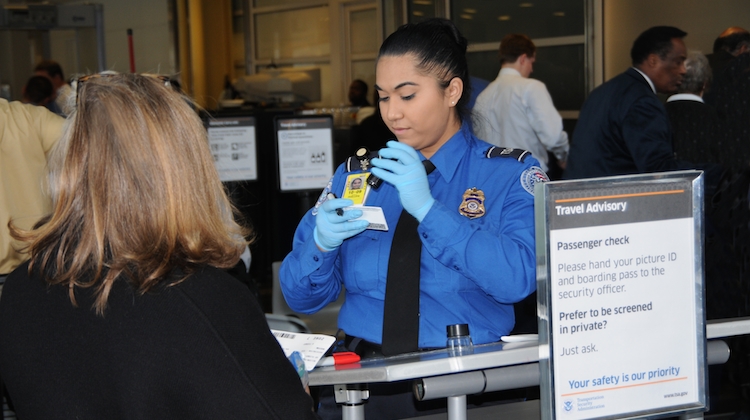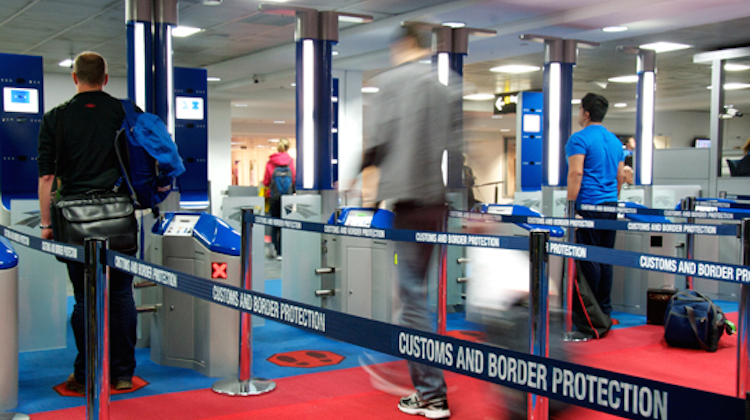
United States Department of Homeland Security (DHS) Secretary John Kelly has announced new security measures for all international flights to the country and the potential end of the laptop ban affecting eight Middle East and North African countries.
The DHS said on its website the measures to apply to all inbound flights included enhancing overall passenger screening; conducting heightened screening of personal electronic devices; increasing security protocols around aircraft and in passenger areas; and deploying advanced technology, expanding canine screening, and establishing additional preclearance locations.

Kelly said this latest announcement followed talks with stakeholders across the industry.
“It is time to raise the global baseline of aviation security,” Kelly said in statement on the DHS website.
“We cannot play international whack-a-mole with each new threat. Instead, we must put in place new measures across the board to keep the traveling public safe and make it harder for terrorists to succeed.
“With this announcement, we send a clear message that inaction is not an option.”
Since March, the US government has required passengers on nonstop flights from 10 airports in eight countries to the US to check in all personal electronic devices larger than a smartphone, such as laptops, tablets, e-readers, cameras, portable DVD players, electronic game units and travel printers and scanners. Smartphones and medical devices were permitted to be carried on board the aircraft.
The rules did not apply to flights departing the United States.
The United Kingdom followed with a similar ban, albeit with a few different countries and airports.
The industry group representing the world’s airlines, the International Air Transport Association (IATA), has slammed the electronics ban.
IATA chief executive Alexandre de Juniac said during the association’s annual general meeting in Cancun early June the electronics ban were estimated to have caused US$180 million in lost productivity and called on governments and regulators to work together on effective solutions for aviation security.
“We need to get security right. There is a clear duty to make sure that the measures are logical, effective and efficient. That is not the case with the current ban. And it must change,” de Juniac said.
“We must find alternatives to the ban. In the short-term, these include more intense screening at the gate and skills training.
“In the medium-term more advanced and faster explosive detection technology is the solution to evolving bomb threats.”
On Wednesday, the Department said the current laptop ban would be removed should the 10 airports affected comply with this latest directive.
Figures from the DHS website showed there were about 280 airports in 105 countries with commercial flights to the United States. Further, some 180 airlines collectively operated on average 2,100 daily flights to the country, carrying 325,000 passengers.
Kelly said the measures would be gradually phased in, giving airlines and airports the time to adapt to the new arrangements.
Those who did not comply faced stricter security regulations and the prospect of losing their right to fly to the United States.
“We will also lay out a clear path to encourage airlines and airports to adopt more sophisticated screening approaches, including better use of explosive detection canines and advanced checkpoint screening technology,” Kelly said.
“Those who choose not to cooperate or are slow to adopt these measures could be subject to other restrictions – including a ban on electronic devices on their airplanes, or even a suspension of their flights to the United States.
“However, we expect all airlines will work with us to keep their aircraft, their crew, and their passengers safe. I have spent months engaging with our closest allies and foreign partners on this issue, and many of them have expressed strong support for this effort.”
Industry body Airlines for America called for more collaboration with airlines in managing the security risk for aviation.
“While we have been assured that carriers will have the substantial flexibility necessary to implement these measures on a global scale, we believe that the development of the security directive should have been subject to a greater degree of collaboration and coordination to avoid the significant operational disruptions and unnecessarily frustrating consequences for the traveling public that appear likely to happen,” said Airlines for America chief executive Nicholas Calio said in a statement.
The new security arrangements affects Qantas and Virgin Australia’s nonstop flights to the United States. Qantas flies to Dallas/Fort Worth, Honolulu, Los Angeles and San Francisco nonstop from various Australian ports, while Virgin serves Los Angeles from Brisbane, Melbourne and Sydney.
In April the Commonwealth introduced extra security measures for passengers travelling on nonstop flights from Abu Dhabi, Doha and Dubai to Australia in response to national security advice.
The measures included explosive trace detection screening, similar to what is in place at airports in Australia for domestic flights, as well as “targeted screening of electronic devices”.





